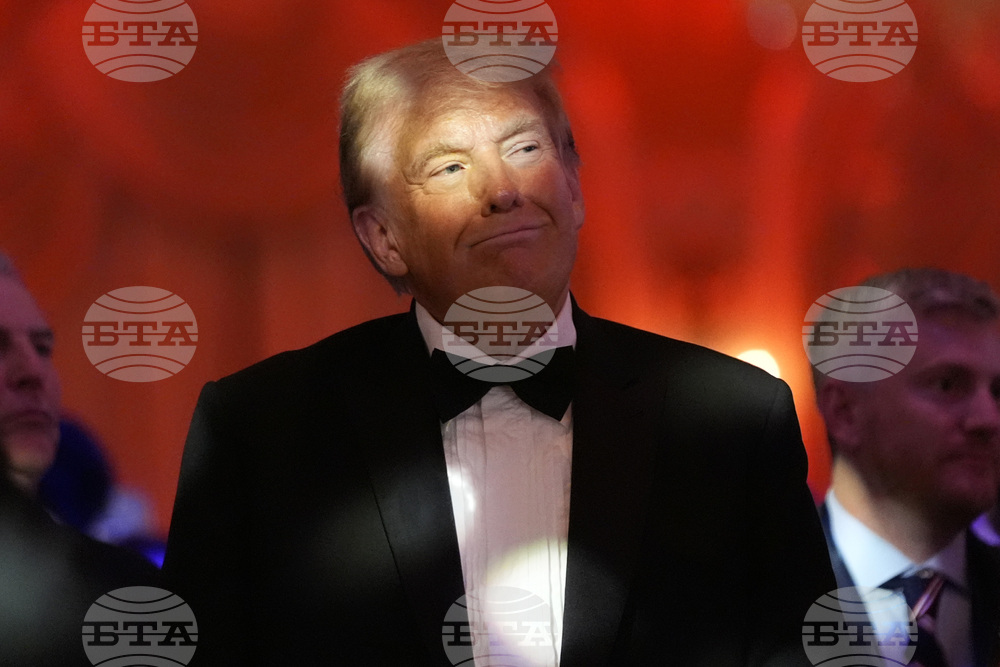site.btaFuture US Policy on Greece and Turkiye: Many Unknowns, Ambivalent Expectations


Public opinion polls before the United States elections showed that support for Donald Trump predominated among the people of Turkiye, while their neighbours in Greece generally preferred his Democratic opponent Kamala Harris.
A survey conducted by the Metropoll agency among a sample of Turkish citizens shortly before the presidential elections in the US and covered by Greece’s Skai TV showed that 30.1% of respondents backed Trump and 23% favoured Harris. The rest said they had no opinion or were not following the events. Support for Trump in Turkiye was strongest among those who backed Turkiye’s ruling Justice and Development Party, its ally, the Nationalist Movement Party, and the pro-Kurdish Peoples' Equality and Democracy Party.
Polls in Greece, one of the latest of which was conducted by aboutpeople for the internet portal News 24/7, indicated that six Greeks out of 10 liked Harris better.
While preferences in the two Balkan societies were relatively clear, they seemed to be largely due to emotional reactions, to judge from the caution with which analysts approach the assumption that Trump’s victory would benefit Turkiye in the complex relationship between Ankara and Athens.
In late October, Greek media reported that the country’s Prime Minister Kyriakos Mitsotakis had met with Mike Pompeo, the secretary of state in the first Trump administration. The two are said to maintain excellent relations, but while Pompeo’s being left out of the new administration may be disappointing to Greece, he is far from being the only vehicle which Athens plans to use in developing its ties with Washington.
Trump’s new pick for secretary of state, Marco Rubio, will expand the US’ defence and energy cooperation with the Eastern Mediterranean, according to Gus Bilirakis, a Republican member of the US House of Representatives of Greek descent, who spoke to ANA-MPA. Bilirakis singled out liquified natural gas projects and connectivity upgrades as US policy priorities for the region.
He noted that Senator Rubio was among the sponsors of two important bills on the Eastern Mediterranean, signed by Trump into law during his first presidential term. One of them became the Eastern Mediterranean Security and Energy Partnership Act of 2019, and the other one, the US-Greece Defence and Interparliamentary Partnership Act of 2021.
According to Bilirakis, these initiatives strengthened the defence partnership between the US and Greece as they supported Greece’s military upgrade and the multilateral security efforts of Cyprus, Greece, Israel and the US.
The congressman is convinced that the new US secretary of state will ensure that Turkish President Recep Tayyip Erdogan is held responsible for his conduct, and will not allow Turkiye to return to the F-35 fighter aircraft programme since Ankara owns a Russian C-400 air defence system.
Cyprus, too, has placed considerable hopes in Rubio as the island country is beset by another longstanding issue between Greece and Turkiye in the region. The Cypriot daily Phileleftheros recalled that the future US secretary of state has played a key role in developing partnership relations between the US and the Republic of Cyprus.
The newspaper also noted that Rubio slammed Turkiye for its moves in Syria in 2019 and Trump’s decision to pull out of the region. The senator was particularly critical of Erdogan’s relations with Venezuelan President Nicolas Maduro.
Concerning Mike Waltz, who is poised to become national security adviser at the White House, Phileleftheros said that he is known for advocating cooperation with the Kurds, particularly during the war against the Islamic State. Waltz proposed issuing special visas to the members of the People's Defence Units (YPG), a Kurdish militant group in Syria considered by Ankara to be an arm of the Kurdistan Workers' Party (PKK). Waltz also criticized Turkiye for cooperating with the Palestinian group Hamas.
The expected support of the new US administration for Israel may be another divide with the leadership in Ankara that is hard to bridge. Greece’s Skai TV quoted the Turkish pro-government newspaper Yeni Safak as describing Marco Rubio as a relentless champion of the Gaza massacre. In Hurriyet, Mike Waltz was called one of the staunchest supporters of YPG/PKK.
After Trump was elected to a second term, Erdogan invited him to visit Turkiye, saying that the model of partnership between the two countries is unquestionable, TRT Haber reported. “He’s tough but I like him,” Trump said about Erdogan back in 2017, when Alexis Tsipras, the Greek prime minister at the time, tried to complain of Turkish infringements of Greek airspace, Kathimerini recalled.
Erdogan is supportive of the intention of the US President-elect to end the war between Russia and Ukraine. Given the vagueness of Trump’s plan, though, it is hard to predict Turkiye’s possible role in the intended ending of the war as Ankara maintains relations with both sides to the conflict and managed, on some occasions, to act as an intermediary between them.
This complex combination of interests and positive and negative attitudes will obviously underpin the new US policy on the Eastern Mediterranean, which is hard to predict for now, as is US President-elect Donald Trump.
/VE/
news.modal.header
news.modal.text